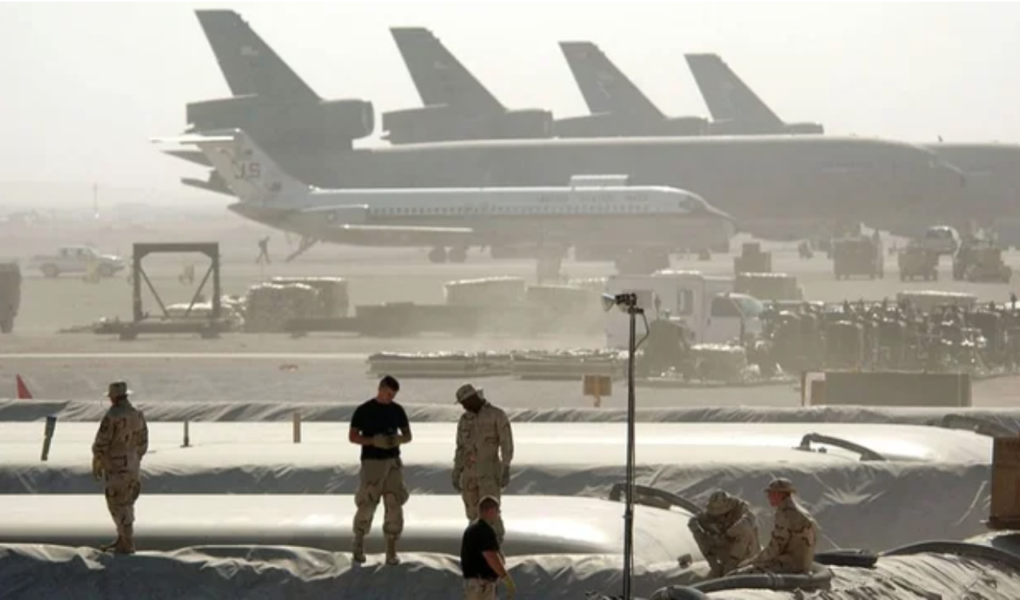After nearly two decades of fighting, the idea of ending America’s wars in Afghanistan and Iraq was one of the few items not on the ballot this November. Both candidates have expressed a desire to terminate what they deem America’s “endless” or “forever wars” in the Middle East. Crucially, however, Joe Biden also noted that America “can be strong and smart at the same time” by focusing on small, yet effective, missions supporting local partners. Once he takes office, President-elect Biden has the opportunity to chart this balanced course by refocusing America’s military posture.
For two decades, counterterrorism in the Middle East has dominated U.S. national security conversations. The Pentagon has designed America’s military presence in the Middle East with this in mind. Biden wrote this past spring that he would bring “the vast majority of our troops home from the wars in Afghanistan and the Middle East,” which is in keeping with the current and previous administrations.
Where Biden is likely to differ from the Trump administration’s approach is with respect to the conditions and speed that President Trump has wanted to pull troops from the region. Biden criticized the Trump administration’s rapid pullback from Syria that allowed Turkey and Russia to capture territory hard fought by America’s Kurdish partners. Withdrawing troops from Afghanistan by mid-January, as Trump has ordered the Pentagon to do, would give the Taliban substantial leverage and could endanger U.S. partners.
Given Trump’s propensity for unconventional governance and the recent replacement of senior Pentagon leadership with advisers who favor quickly leaving Afghanistan, the president may attempt to surprise the nation before he leaves office with a withdrawal.
Yet for all of the talk about “endless wars,” the term ignores that an American president cannot resolve these foreign conflicts merely by bringing U.S. troops home.
Nor does focusing solely on these wars reflect where most U.S. troops are stationed in the Middle East. America’s primary function in the region has shifted from the large combat operations at the height of the Afghanistan and Iraq wars to training and assisting local partners so that they wage the bulk of the fighting. There are approximately 60,000 to 70,000 troops in the region, most of them at bases in Bahrain, Jordan, Kuwait, Oman, Qatar, Saudi Arabia, Turkey and the United Arab Emirates (UAE).
Since ensuring the free flow of trade and energy, countering terrorism, and deterring Iran remain enduring U.S. interests in the Middle East, the smart move would be to offload more of the routine operational responsibilities to regional partners. By doing so, the U.S. military could focus on areas where it is uniquely suited, including ballistic missile defenses, special operations forces, and intelligence, surveillance and reconnaissance (ISR) resources.
Consolidating assets in reliable partners would enable Washington to efficiently allocate its assets so that they can continue engaging in counterterrorism and stability operations. For example, upgrading the U.S. weapons stockpile in Israel, specifically to include precision-guided munitions, would better enable both American and Israeli forces to respond quickly in an emergency. Regionalizing this stockpile so that it supports American operations throughout the Middle East and Europe could further reduce inefficiencies.
A streamlined posture also means downgrading commitments with nations that are either not as strategically important or aligned with U.S. interests as they once were.
While Turkey is a NATO ally, it has undermined American operations in Syria, exacerbated the Libyan civil war, and escalated tensions in the Eastern Mediterranean with Greece, another NATO ally. Despite multiple warnings, Ankara purchased the Russian S-400 air defense system, triggering the Pentagon to cut them off from the coveted F-35 aircraft program. Turkey now has tested the system, signaling that America’s objections have not changed Ankara’s behavior.
It is time to seriously consider moving America’s air and reported nuclear assets from Turkey’s Incirlik Air Base. The United States could redeploy the weapons it purportedly maintains at Incirlik to more stable and reliable allies in Europe. Preparing to move the 39th Air Wing to Greece or Cyprus also would signal to Ankara that it needs to change course.
Likewise, the U.S. Air Force has a sizable presence at the al-Udeid air base in Qatar, and although al-Udeid was essential to U.S. air operations in Afghanistan and provided a strategic position in the Persian Gulf, if cuts are necessary, it should be near the top of the list.
Unfortunately, hasty withdrawals have shown that how the United States makes these changes will be as vital as the changes themselves. Done properly, a smaller but smarter U.S. military posture could be a force for regional stability.
Ari Cicurel is a senior policy analyst at the Jewish Institute for National Security of America’s (JINSA) Gemunder Center for Defense and Strategy.
Originally published in The Hill

